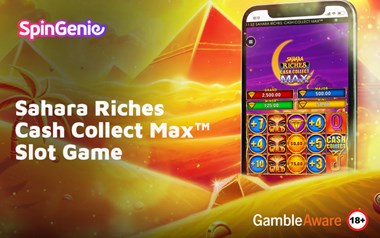They say the future is now, but at Spin Genie, we think the best is yet to come. In today’s article, we’ll be exploring the future of online slots, examining current trends in slot games, and how new technology in slot gaming will influence not only future releases but the overall slot experience for players. So, if you want to learn if VR slot games truly are the next step in slot innovation, how cryptocurrency might be the payment method we all start using, or just what the future has in store in Spin Genie’s crystal ball, keep on reading.
First, We Need to Go Back!
Before we can go back to the future of online slots (Marty McFly not included), we first need to look into the past on a whistlestop tour of the fascinating history of slots. It’s only by knowing where we’ve come from and what’s changed already that we can be more logical in our predictions for the future of online slots.
Here are some of the highlights of slot machine history:
Early Days
- 1880s: The first slot machines from Sittman and Pitt and Charles Fey's Liberty Bell. These devices spawned contemporary slots.
- Early 20th Century: Strict gambling laws were introduced that nearly banned slot machines. Manufacturers pivoted and utilised fruit symbols, with the prize being a stick of gum from the Bell-Fruit Gum company, whose logo inspired the ‘BAR’ symbol still seen today.
This period highlights the often shaky grounds that gambling games like slots have had to navigate and how regional laws can dramatically shift the trajectory of the industry. This is still a factor that influences slots made today, and means that the future of online slots is never certain.
Digital Age
- 1963: Bally introduces the electromechanical slot "Money Honey," which could pay up to 500 coins without an attendant, setting a new benchmark for casinos.
- 1970’s: Microchips replaced mechanical reels with digital displays creating the first video slots. RNG (Random Number Generator) technology, essential to slots today, debuted about this period.
- 1986: IGT created "Megabucks," the first progressive slot network.
This era documents how rapidly technological improvements can change fundamentals of game design, and how, when we consider what’s next for online slots, the consideration of technological advancements should not be overlooked.
Safety and Scale
- 1994: Safe online payment methods were developed, making spending money online possible.
- 1996: Intercasino became one of the first online casinos and the first online progressive slot, "Cash Splash," was created by Microgaming.
- Late 1990s: During the 90s, prior RNG technology was improved to ensure fair play. Games like "Reel 'Em," with its second-screen bonus round, make internet slots begin to differentiate from traditional slots.
- 2001: Online gaming became more accessible as computers became more affordable and internet connections improved. An estimated 8 Million people had registered accounts at online casinos worldwide. This year also saw the establishment of the Malta Gaming Authority (MGA) the first compliance and licensing body for online casinos.
In under a decade, the trajectory of slots changed forever and has continued to change at breakneck speed. Oftentimes, this advancement moves more swiftly than laws and safety measures, which has led to rumours of rigged and unfair online casinos that exist to this day. This time also highlights the need for strict and thorough monitoring and regulation to keep players safe.
Natural Developments
- 2004: The first branded slot ‘Lara Croft: Tomb Raider’ was released by Microgaming (Games Global).
- 2005: Play'n GO, founded in 2005, was one of the first mobile-first game developers. The first online progressive jackpot network called ‘Mega Moolah’ was created by Microgaming (aka Games Global). UK lawmakers enacted the Gambling Act, established the United Kingdom Gambling Commission (UKGC) and gave local authorities licensing authority over land-based and internet gambling in the UK.
- 2007/8: The first smartphones allow for mobile gaming. Online casinos started to develop mobile apps to optimize mobile gameplay. In 2007 the UKGC replaced the Gaming Board for Great Britain, becoming the sole body behind all casino and betting actions within the UK.
The development of smartphone technologies was the biggest shift in online slots since the dawn of the internet. We can use brands’ responses to this change as a guide for the future. Most notable for the UK, the UKGC consolidated the disparate offshoots of betting regulation into one cohesive body, which has since become a gold standard replicated around the globe.
Innovation Abounds!
- 2010: Online poker starts to reveal the possibility of live gameplay and online social interaction between players.
- 2012: After Bitcoin, the first cryptocurrency launched in 2009, the first online crypto casino BitZino, was launched.
- 2016: Big Time Gaming released their groundbreaking ‘Megaways’ game system, first seen in their slot ‘Bonanza’. In the same year NetEnt released the first ‘cluster pays’ online slot in the form of ‘Aloha!’
- 2017: Adobe announced its discontinuation of Adobe Flash, a computer program that had helped shape game and web design since the internet's infancy. Many of the much-loved early online slots were developed in Flash, meaning these titles were either discontinued or updated to use HTML5. All platform support ended in 2020.
- 2017/18: NetEnt releases the first virtual reality real money slot, Gonzo’s Quest VR.
- 2019: Buffalo Blitz Live is released by Playtech; one of the first slots made for the live casino market.
The 2010s was a decade of huge change and innovation that has seen online slots divided into a plethora of distinct categories such as live and VR games.
Unprecedented Events
- 2020: The global pandemic and resulting quarantining resulted in more players than ever joining online casinos, with some sites seeing the rate of new members increase by up to 40%. Due to the isolation experienced by many, social and live chat features, and the concept of an online casino community, started to become more prevalent. Also in 2020, the UKGC banned the use of credit cards in UK online casinos.
- 2021: The UKGC opts to ban autoplay and quickspin features in all online slots played within their jurisdiction.
This era indicates how unprecedented world events can make an everlasting impression on online casinos and slots and highlights the vigilance and adaptability that regulatory bodies must possess to keep players safe.
Where Are We Now?
Now we are back to the present, let’s sum up what online slots currently look like, so we can make our predictions for what is to come.
Online slots are bigger than ever, with a recent study by the UKGC finding that the number of spins from January to March 2024 increased 12 per cent to a new peak of 22 billion, with a 7% increase of monthly active accounts totalling 4.2 million. With well over 100 different development houses and over 280 online slot games having been released in just the first few months of 2025 alone, it seems the online slot industry is moving faster than ever.
The recent pandemic and the advancement of live technology have highlighted the desire and in some cases, the need for a more social gaming experience. This can add a whole new layer of issues regarding player safety that bodies like the UKGC will need to carefully consider in the near future.
The rise of gamification in online slots (which we’ll cover more later), and the popularity of faster-paced Crash gambling games have gone down well with players, but have concerned lawmakers. This is evidenced by new UKGC regulations enacted in August, limiting maximum wagers per spin to £5 with a future further reduction to £2 for players aged 18-24 from the 21st of May.
Similarly, some adaptations may need to be made given the rise of mobile payment methods such as Google Wallet and ApplePay, and the gradual mass-market acceptance of Cryptocurrency.
So, What’s Next For Online Slots?
Now that we've examined key moments of the past and assessed where we are now, it’s time to look into our crystal ball and make our predictions in the following categories.
Legislation
Following the 2024 Gambling Act review, new legislation has come into effect to promote responsible gambling. As mentioned, upper betting limits are cut to £5 per spin, and at the end of May, some of the first age-related restrictions will come into effect, meaning those of legal betting age (18+) under the age of 24 will be further limited to maximum wagers of just £2.
From October 2025, providers must prompt consumers to establish an obligatory deposit limit, making the system opt-out where currency is ‘opt-in’. Users must also be reminded of their spending habits by highlighting transactions and reviewing deposit limits every six months.
The Gambling Act review has led to more modifications to internet gambling marketing and advertising laws. Instead of automatically opting in, players must now choose to receive marketing materials. In addition as a measure to protect minors, by 2026, suppliers must stop promoting with prominent athletes like footballers. Suppliers have opted to stop football shirt advertising in response to this decision.
With the rise of technologies such as VR and AI integration, and the rising gamification trend having the combined aim of making online slots more convenient, personalised, and immersive, it is likely future legislation reviews and laws will need to be enacted in the coming years.
Mobile Gaming
By 2028, Statistica estimates that the UK smartphone-using population alone is expected to reach 66.62 million. Many more developers are choosing a ‘mobile-first’ approach in line with this shift. Mobile optimisation of online slot sites and the games they host has become vital, and while many brands have dedicated apps, the use of HTML5 technology has allowed cross platform optimisation directly from web browsers.
The rise of mobile gaming will likely mean we see even more cascading reels slots and cluster pays slots. The huge popularity of Crash games is also likely to become seen in online slots, with some games already starting to do away with traditional spinning reels.
Live Gaming
As of writing, there are less than 10 live casino slots in operation. The live casino industry is going from strength to strength and as slots have always had a huge fan following, it seems natural that more of the top slots will be developed as a live casino variant.
Technological Advancements
Lauded for its added security, it is expected that more Cryptocurrency banking options will be made available to players. Similarly, the convenience of phone payment systems like Apple Pay will be further integrated.
Artificial Intelligence (AI)
AI is a buzzword of late and is dramatically changing the online world. Slot sites are starting to use AI to personalise players’ experience and provide greater customer support. AI could be used to keep track of player habits and notify players if they’re displaying at-risk behaviour.
Virtual Reality (VR)
VR has been around for decades, and became particularly popular a few years back. While some advancements have been made with mobile phones to use VR, the technology is still expensive and requires a decent technical understanding and equipment.
While graphics are improving, they are still some way off being fully immersive, and VR still feels like more of a casual or novelty experience than the future of gaming. Still, in the years to come, we will most likely see more VR slots, or even online casinos that present themselves with a VR lobby players can navigate.
Gamification
Gamification is probably the biggest change happening right now that is impacting and influencing future online slots. Gamification refers to the use of game design in non-game situations. This appeals to our love of games, competition, and achievement. Gamification is used to give a sense of fulfilment, accomplishment, and achievement to players helping to keep them engaged and increase return players.This is already seen in online slot sites with loyalty programs, tournaments, and promotions.
This approach is now being extended to the games themselves. Online slots are gamified by incorporating video game components such as bonuses, storylines, level-ups, achievements, and more. The impact this is already having has been made clear by the policy reviews and reactive measures undertaken by the UKGC, which both recognise the proliferation of gamification, but also address growing concerns of how gamification could more easily lead to unsafe gambling behaviours.
What’s Next? Only Time Can Tell!
So there you have it, we’ve used the history of slot machines and the current state of play to make informed predictions of the future of online slots. While nothing is ever certain or set in stone, as here at Spin Genie, we consistently add the latest releases to our site. If you play with us, you won’t miss out on the biggest and best slot innovations the industry has in store. Sign up and play today.













